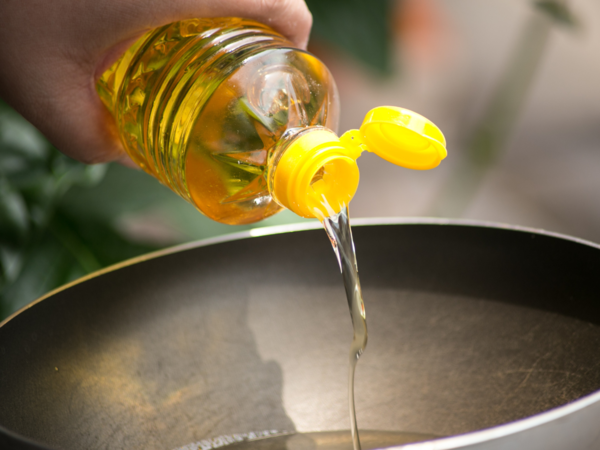While you might diligently read food labels, are you truly aware of the potential health hazards lurking in common, store-bought foods? It's time to look beyond the nutrition facts and examine the ingredients themselves. Many seemingly harmless items contain additives that could be silently impacting your well-being. From your morning cereal to that post-workout protein bar, hidden components may be doing more harm than good.
Here are some everyday ingredients that can negatively affect your health:

Food dyes are ubiquitous, coloring everything from candies to flavored rice. While these synthetic dyes make food visually appealing, the health costs may be significant. Artificial food dyes like Red 40 and Yellow 5 have been linked to neurobehavioral issues, particularly in children, with studies suggesting they can increase hyperactivity. The US Food & Drug Administration (FDA) recently banned Red No. 3, a bright cherry-red colorant, due to its association with cancer, but it remains in use in several countries.

Titanium dioxide is frequently used to whiten foods, enhancing their visual appeal. Found in products such as coffee creamers, candies, sunscreen, and toothpaste, this chemical has been classified as a Group 2B carcinogen by the FDA. The nanoparticles present in titanium dioxide can trigger inflammation and oxidative stress within the body.
 Brominated vegetable oil (BVO) is an emulsifier used to stabilize citrus-flavored drinks, preventing flavor oils from separating. Studies have connected BVO to neurological problems, thyroid dysfunction, and heart and liver damage. Despite being banned in Europe and the US, it remains in use in several countries.
Brominated vegetable oil (BVO) is an emulsifier used to stabilize citrus-flavored drinks, preventing flavor oils from separating. Studies have connected BVO to neurological problems, thyroid dysfunction, and heart and liver damage. Despite being banned in Europe and the US, it remains in use in several countries.

Potassium bromate is a flour additive used to strengthen dough in bread making. However, the World Health Organization classifies it as a possible human carcinogen. This ingredient is banned in Europe, Canada, and other regions. Potassium bromate acts as a nephrotoxin in both animals and humans and has been linked to kidney and thyroid tumors in animals.

High fructose corn syrup (HFCS), a sweetener prevalent in sodas and snacks, is a major contributor to obesity and diabetes. Research indicates that HFCS consumption disrupts metabolism, increasing fat storage and insulin resistance. From sugary beverages to processed foods, this ingredient is widely used.
Newer articles
Older articles
 Greg Chappell: Rishabh Pant is Redefining Cricket with His Fearless Batting
Greg Chappell: Rishabh Pant is Redefining Cricket with His Fearless Batting
 Wimbledon 2025: Streaming Guide for India & US Viewers - Dates, Prize Money & New Tech
Wimbledon 2025: Streaming Guide for India & US Viewers - Dates, Prize Money & New Tech
 Vijay Sethupathi Responds to Controversy Surrounding Son Surya's Film Debut 'Phoenix'; Apologizes if Anyone Was Hurt
Vijay Sethupathi Responds to Controversy Surrounding Son Surya's Film Debut 'Phoenix'; Apologizes if Anyone Was Hurt
 Smith Set for Second Test Comeback After Unique Baseball Cage Recovery
Smith Set for Second Test Comeback After Unique Baseball Cage Recovery
 Spotting Prediabetes: Key Warning Signs Your Body May Be Sending
Spotting Prediabetes: Key Warning Signs Your Body May Be Sending
 X Cracks Down: Half a Million Indian Accounts Suspended for Policy Breaches
X Cracks Down: Half a Million Indian Accounts Suspended for Policy Breaches
 JPG to PDF: A Graphic Designer's Guide to Conversion on Desktop and Mobile
JPG to PDF: A Graphic Designer's Guide to Conversion on Desktop and Mobile
 Daren Sammy Fined for DRS Criticism After West Indies-Australia Test
Daren Sammy Fined for DRS Criticism After West Indies-Australia Test
 Tiêu đề:
Oral Cancer: Know the Signs, Risk Factors, and Why Early Detection is Critical
Tiêu đề:
Oral Cancer: Know the Signs, Risk Factors, and Why Early Detection is Critical
 Google Unveils Strategy to Bolster 2024 Indian Elections: Combating Misinformation and Promoting Voter Access
Google Unveils Strategy to Bolster 2024 Indian Elections: Combating Misinformation and Promoting Voter Access